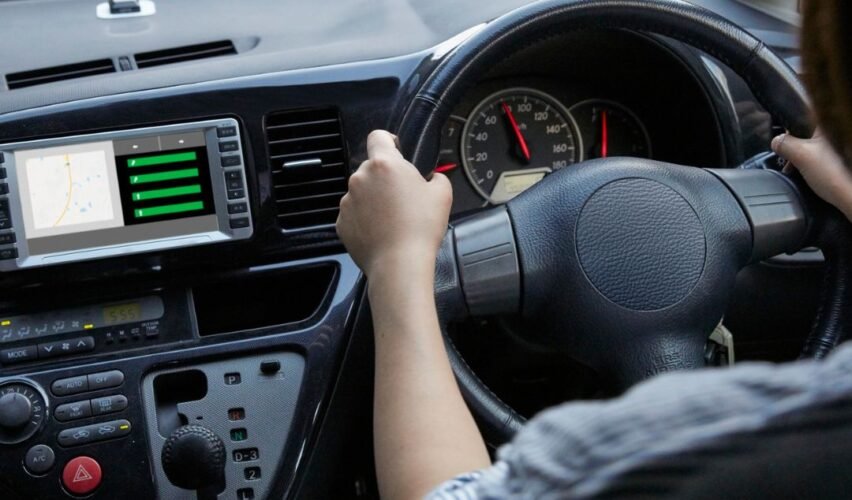Do you operate a bus, large truck, or carry passengers or hazardous cargo? Then you must know that New York has much stricter rules for Blood Alcohol Concentration (BAC) for non-commercial drivers. If you exceed the legal limit, there is a chance of losing your Commercial Driver’s License (CDL). Further, you will have to pay serious penalties and long‑term career consequences. Here’s everything you need to know.
The BAC Threshold for Commercial Drivers
The legal BAC limit in New York is 0.04% for holders of a Commercial Driver’s License operating commercial motor vehicles. Reaching or exceeding this level while driving a commercial vehicle means facing charges under laws specific to CDL operators. As commercial drivers are responsible for the safe handling of lives and goods, they are expected to maintain a BAC level.
How This Limit Compares with Standard Driving Limits
- The threshold is higher for regular (non‑commercial) drivers aged 21+. 0.08% BAC is the typical limit for driving while intoxicated (DWI).
- For young drivers under 21, there is often zero tolerance. The BACs are very low, and if the driver is found under such as 0.02%, they may already be violating laws.
- Another category is for aggravated BAC (very high levels). This carries enhanced penalties regardless of whether the driver is commercial or not.
Legal Classification: “Per Se” Offense & VTL § 1192.5
According to the applicable law in New York, a commercial driver, whenever found with a BAC level of 0.04% or more, is automatically charged with a traffic violation. It is considered a “per se” offence that comes with serious legal consequences. That means prosecutors do not need to prove impairment separately. The BAC test result itself is enough evidence for a charge. The driver is charged under Section 1192.5 of New York’s vehicle and traffic statutes.
Penalties for Violating the Commercial Limit
Any commercial driver who is found to operate the vehicle with a BAC of 0.04% or more will face severe legal consequences. These are as follows:
| Offense | Statute | Type of Offense | Fines / Penalties | Jail Time | CDL Consequences |
| Level I (BAC 0.04%–0.06%) – First Offense | NY VTL § 1192.5 | Traffic Infraction | $300–$500 fine | Up to 15 days | CDL revoked for 1 year (3 years if transporting hazardous materials) |
| Level II (BAC over 0.06% or Aggravating Factors) | NY VTL § 1192.6 | Misdemeanor or more serious | Higher fines depending on BAC and prior offenses | Up to 180 days or more | CDL revoked 1–3 years, possibly permanently if a repeat offense or transporting hazardous materials |
If the accused is found carrying hazardous materials, these penalties will be severe. Repeat offenses or offenses within defined “look-back” periods lead to enhanced penalties. This means the accused have to face higher fines, longer jail time, longer revocations, or possibly permanent loss of CDL. Further, Commercial drivers may also face indirect consequences: job loss, difficulty in employment, higher insurance premiums, mandatory use of ignition interlock devices, and other regulatory or civil enforcement actions.
Consequences of Chemical Test Refusal
There is no way to refuse the test. Why? Well, refusing a chemical (breath, blood, urine, etc.) test can bring separate penalties. Law enforcement will confiscate your license on the spot. A temporary driving permit will be issued, valid for 10 days. It allows time to request a DMV hearing.
In New York, commercial drivers who refuse a chemical test face a $550 fine and CDL revocation for at least 1 year (3 years if carrying hazardous materials). A second refusal can lead to permanent CDL loss. These penalties apply even without a DWI conviction. No conditional CDL is allowed during revocation. A DMV hearing must be requested within 10 days.
Why the Commercial BAC Limit Is Lower
There are several reasons why the commercial BAC limit is much lower than that of non-commercial vehicles. The reasons are as follows:
- Commercial drivers operate larger vehicles, heavier loads, and transport passengers or dangerous materials. These increse the risk if the driver is impaired.
- There is no doubt that commercial vehicle drivers are held to higher safety and professional responsibility standards.
- Federal regulations also impose higher safety guidelines for commercial vehicle drivers. They should maintain safe interstate commerce and align with national safety goals.
Defenses and Mitigating Options
If you’re facing a charge for commercial BAC violation, here are paths your defense may explore:
- Challenging the traffic stop: whether there was lawful cause for the stop.
- Questioning the chemical test procedure: was the test properly calibrated/handled? Was the driver read Miranda‑type rights for chemical tests?
- Arguing errors in processing, chain of custody, or whether the device used met legal standards.
- Possible plea to lesser charges depending on circumstances, first offenses, or other mitigating factors.
Career & Long‑Term Effects
A commercial BAC or DWI violation is not a short-term problem. It can affect your career in several ways:
- You will find it hard to find a job again that involves the role of a commercial driver. All U.S. employers hire drivers with a clean record and restrict previous offenses strictly.
- You will lose insurance and other costs related to your driving if accused of BAC charges.
- Drivers transporting hazardous materials or passengers may be impacted by endorsement loss.
- You will face stricter rules in future licensing or permit applications, especially for interstate driving.
Key Takeaways for CDL Holders
- If you have a commercial driving license, you should remember that 0.04% BAC is the legal ceiling while operating commercial vehicles.
- Even if your BAC is well below the non‑commercial limit, exceeding 0.04% triggers serious penalties
- Always avoid alcohol before driving a commercial vehicle. When in doubt, don’t drive.
- Be aware of test refusal laws and ramifications.
- If charged, consult an attorney experienced with commercial driver DUI/DWI laws. These cases have particular nuances.
Conclusion
Commercial vehicle driving is a responsibility that comes with a lot of responsibility. New York State has stringent laws aimed at ensuring the safety of society. In New York, the legal blood alcohol concentration (BAC) limit of a commercial driver is 0.04 percent, much less than the 0.08 percent limit of a non-commercial driver. Breaking this limit will have severe repercussions, including suspension of the license, substantial fines, and even imprisonment.
To any person with a commercial driver’s license (CDL), being aware and making responsible, safe decisions is not merely a matter of staying on the right side of the law, but it is a matter of life itself. Never drive under the influence, even a little can count a lot, and it is better to think before driving. Just keep in mind that alcohol and driving are two things that do not go together. If you are accused of BAC violation under the New York Commercial Vehicle Law and are looking for legal guidance, contact Kristine Ciganek. She has been one of the top traffic lawyers in the city and can help you be free from such charges.
FAQs
1. What is the legal BAC limit for commercial drivers in New York?
The legal BAC limit is 0.04% for commercial drivers. The limit is lower than the 0.08% limit for regular drivers.
2. Why is the BAC limit lower for commercial drivers?
Commercial drivers have more responsibility than non-commercial drivers as they are responsible for operating commercial vehicles. These stricter BAC limits help ensure higher safety standards for passengers, cargo, and road users.
3. What happens if a commercial driver exceeds the BAC limit?
Penalties include license suspension, fines, potential jail time, and a permanent mark on the commercial driving record.
4. Can a commercial driver refuse a BAC test in New York?
Refusing a test can result in automatic license suspension and disqualification from operating commercial vehicles, even without a conviction.



























